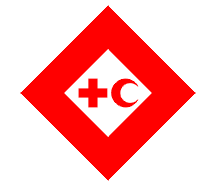“DECISION 22 Support to National Societies most in need of improving their capacity” refers to “Households headed by women” among particularly vulnerable groups.
“DECISION 23
Women in Red Cross/Red Crescent Development
The General Assembly,
Recalling Decision 33 of the Vllth Session of the General Assembly in 1989, and the endorsement of the Plan of Action on Women in Red Cross/Red Crescent Development,
Increasingly concerned about the vulnerability of women and children in situations of deprivation, including disasters,
Aware of the often weak economic, social and legal position of women, aggravated by the current adverse socio-economic conditions,
Concerned about the continued use of harmful traditional practices threatening the lives of women,
Recognising that women’s hard life in the countryside and in urban slums is not only a question of basic injustice, but also an impediment to economic and social development,
Urges all National Societies and League representatives responsible for the implementation of development programmes to:
- consider women as a major target group for Red Cross/Red Crescent development programmes;
- ensure that the role of women in situations of disaster is being taken into account adequately;
- put emphasis on community-based primary health care, including child spacing. family planning and clean water supply. in order to meet some of the most urgent needs of women and children;
- review ongoing health activities, particularly first-aid training. to ensure that they cater to the needs of the most vulnerable;
- ensure that literacy and other training schemes for women daily concerns and aim at improving are linked to their lives;
- promote income generation activities for women, and ensure that such projects are economically viable and become independent of subsidies from the National Societies;
- embark upon labour-saving development projects for women, giving high priority to water and fuel supply, child care, agriculture and food processing.
“DECISION 31 AIDS: a continuing Challenge for the League” contains the following paragraph:
“Aware of the continuing need for information and education, for programmes to prevent HIV sexual transmission and HIV transmission among intravenous drug users and for measures to ensure the safety of blood supplies and adequate sterilization of medical equipment to prevent the spread of HIV,”
“DECISION 32 First Aid” contains a paragraph mentioning women:
“Encourages all National Societies to consider both the physical and psychological emergency needs of vulnerable people and to ensure that their first-aid training programmes focus on the varying needs of different groups (eg. children, young people, women and the elderly) and of people in different situations (eg. urban, rural, industrial),”
“DECISION 33
Health of Women and Children
The General Assembly,
Recognizing the major contributions that many Red Cross and Red Crescent Societies have made to improving the physical, mental and social well-being of women and children around the world,
Recalling that, in addition to General Assembly Resolutions on primary health care (1981 and 1986), a number of Decisions have been adopted by the General Assembly· which focus on improving the health of children (1983, 1985, 1986), young people (1989) and the health and development of women (1989),
Concerned about the many factors which continue to undermine the health of children and women, particularly mothers, and about their continuing vulnerability which is a major focus for the League1s Strategic Work Plan for the Nineties,
Aware that women and children frequently suffer disproportionately during armed conflicts, disasters and population displacements, and are likely to be particularly seriously affected by the negative impact of structural adjustments, national debt repayment, and continuing expenditure on armaments,
Aware that much of the disease, disability and death of women and children could be prevented or alleviated through the implementation of simple, available, low cost interventions, and that there is an urgent need to improve their access to health services, including family planning and education, in line with the Recommendations of the World Conference on Education for All,
Recognizing the important contributions that National Societies could make, in terms of advocacy and action, to support the World Summit for Children’s Declaration and Plan of Action for the Survival, Protection and Development of Children,
Recognizing the potential that National Societies have to contribute to the Nairobi Strategy for the Advancement of Women, and to mobilize for the ratification and implementation of the Convention on the Rights of the Child and the Convention on the Elimination of all Forms of Discrimination against Women,
Cognizant of the need for a holistic and integrated approach to the health of children, women and men, based on the primary health care approach, and aware of the importance of promoting and supporting the goals of the forthcoming International Year of the Family (1994),
Urges all National Societies to encourage their Heads of State and Government to ratify and implement the UN Convention on the Rights of the Child and the UN Convention on the Elimination of All Forms of Discrimination against Women, and to contribute towards and monitor the attainment of the specific targets of the Plan of Action of the World Summit for Children and the Nairobi Strategy for the Advancement of Women,
Urges all National Societies to strengthen and develop advocacy and activities that focus on improving the physical, mental and social well-being of children and the health and development of women through sustainable community-based programmes which help to decrease vulnerability,
Urges all National Societies to continue to cooperate, collaborate, and develop networks and respectful partnerships with governments, other NGOs and relevant inter-governmental organizations in order to improve the health of women, children and young people,
Requests the Secretary General to assist National Societies through sharing information, developing human and other resources and strengthening international cooperation with inter-governmental organizations and other NGOs and to continue to take a leadership role in the follow-up to the World Summit for Children.
